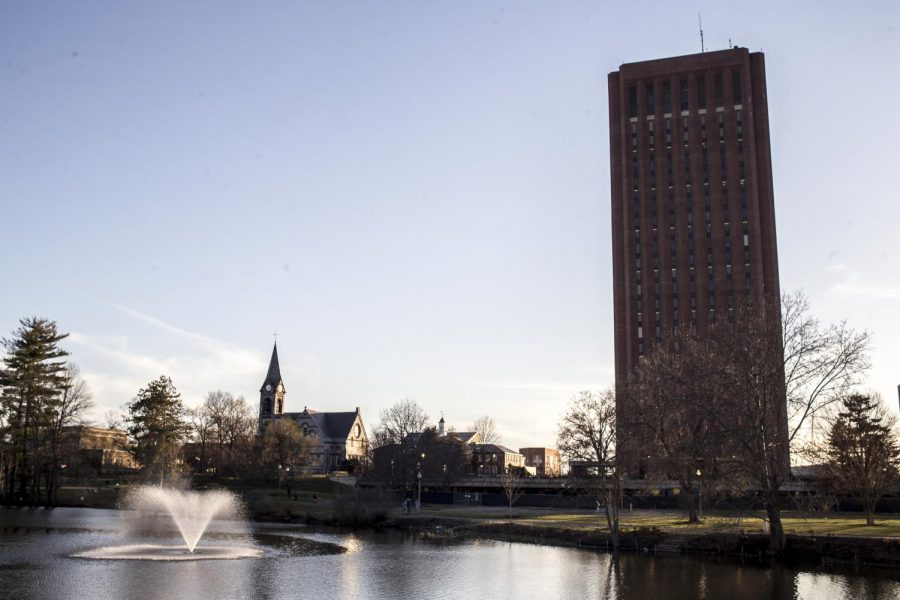This question is one often heard on the campus of University of Massachusetts as way of introduction. It’s not surprising, as UMass is made up of about 77 percent undergraduate Massachusetts residents, according to university released statistics for Fall 2019 enrollment. The same can be said for UMass Boston, with 86 percent in-state undergrads in 2019, and more than 75 person and 84 percent for UMass Lowell and UMass Dartmouth, respectively.
One important aspect of a university is the diversity of its students. Diversity increases a school’s selectivity, and it is an important marketing tool for universities to showcase their students’ unique backgrounds and experiences. As a result, most schools seek to diversify their student population and attract out of state and international students.
However, many state schools have a lack of diversity due to their lower tuition rates for in-state students. For example, University of Connecticut housed 72 person Connecticut undergraduates in Fall 2017, and 53.9 percent of the University of Rhode Island’s undergraduates are in-state residents.
Among the most diverse colleges in the United States are University of California Los Angeles and Berkley. I began to think about what makes California schools generally much more diverse than others, even compared to those with the same prestige and reputation that would attract out of state and international students. In general, the diversity of students in California colleges result from the diversity of California as a whole. Just as California state schools are a reflection of California itself, UMass and other state schools in the northeast are also reflections of their locale.
Although a lack of diversity does not necessarily represent a lack of cultural, experiential or intellectual diversity, it is often seen as such. Others could also argue that a lack of diversity creates a sheltered, localized bubble for students. Will UMass students have trouble adjusting to life after college where they will be exposed to people with very different backgrounds and perspectives of the world?
I don’t think so. The majority of UMass students may hail from Massachusetts, but that does not mean that they are of unified backgrounds and culture. Yes, they often share common interests and memories, but they have unique differences and came from different environments.
I found that coming to a university of mostly Massachusetts students to be unifying and a community building experience. I love hearing thunderous support coming from the residential halls around me when a Boston sports team wins their next World Series, Superbowl, Stanley Cup or NBA title, or meeting up with other students in Boston over school breaks. I enjoy going to a school united by these common backgrounds. To me, these shared experiences are one of the best parts of going to UMass, as well as any other state school. Additionally, going to a large private university that attracts students from all over the country as well as the world, such as Northeastern University and Boston University, do not offer the same kind of hometown community spirit as state schools like UMass.
At these schools, the identity of the student population is associated with the school name itself, or its own personal brand. For example, BU students, although wildly diverse, represent BU. In contrast, UMass students seem to represent more than just the university name itself. UMass students, including those from UMass Boston, UMass Lowell and UMass Dartmouth, all represent the state itself, more so than just each separate branch of the University of Massachusetts.
Many of my friends go on vacations to the Cape, visit Boston for day trips, took Massachusetts Comprehensive Assessment System (MCAS) and share many other common experiences with me. However, they also differ in many other ways. I have friends who are Armenian, Korean, Russian and Greek. They grew up in the city, the suburbs and some grew up only five minutes off campus. The unique perspective each individual student at UMass has to offer should not be overshadowed by the assumption that state schools lack diversity due to an influx of instate students.
Overall, although most universities consistently seek to promote both cultural and geographic diversity and try to increase these aspects in their students, the strength of community that comes from geographic unification is undervalued by many institutions. Additionally, state schools such as UMass, while they may lack a geographic diversity amongst students, are diverse in a multitude of other ways.
Alanna Joachim is a Collegian columnist and can be reached at [email protected].



















